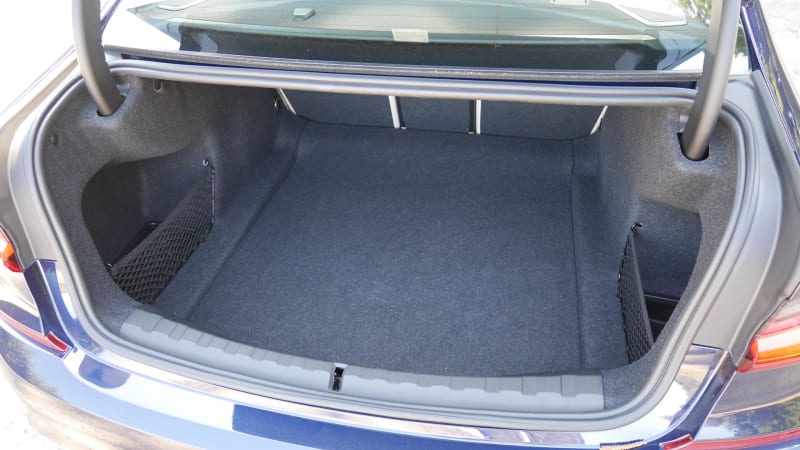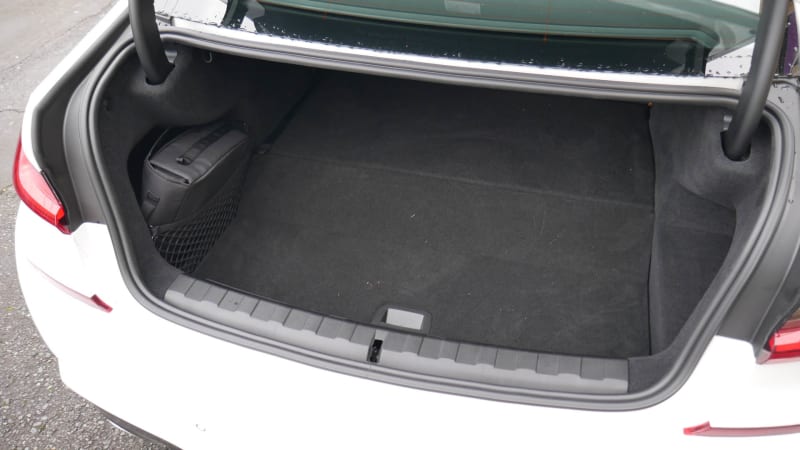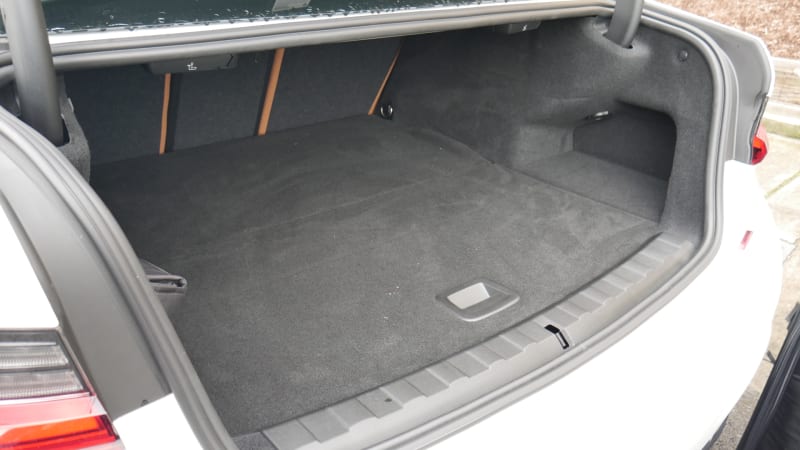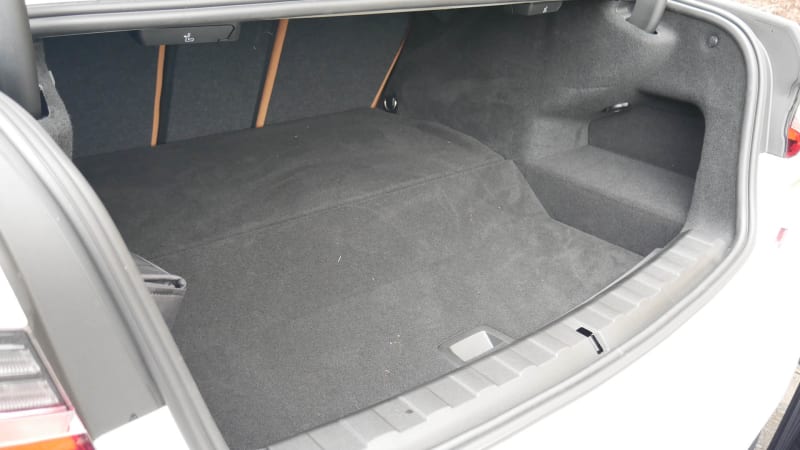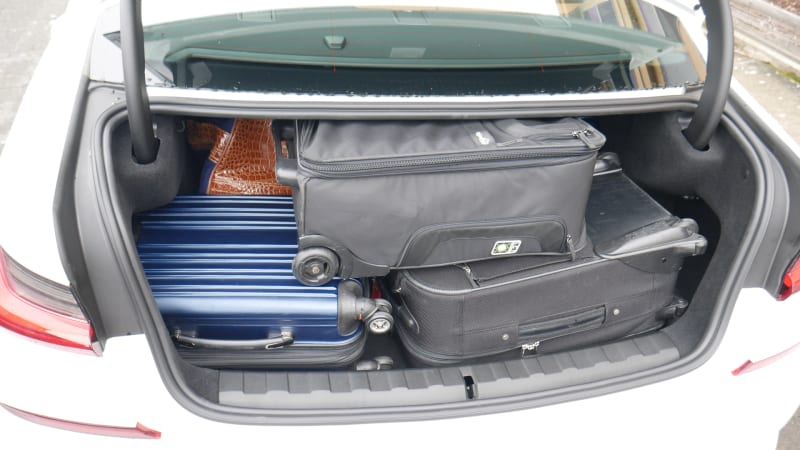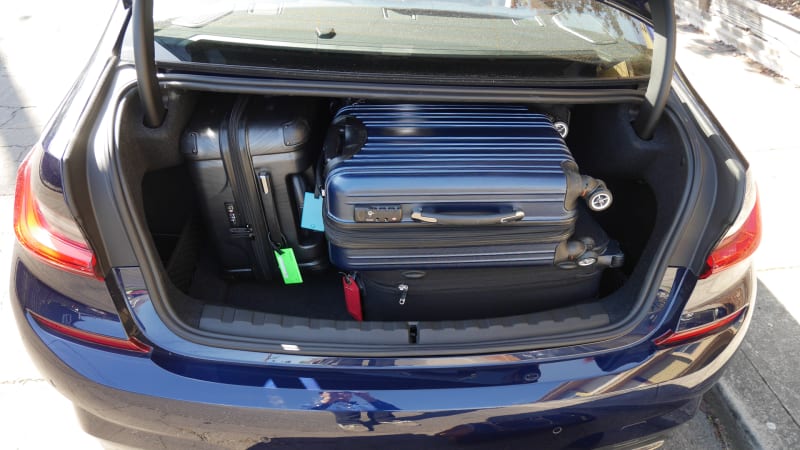Alright, so this luggage test wasn’t literally conducted on our long-term 2022 BMW 330e. For some reason, John Snyder didn’t want to spend 34 hours driving 2,350 miles to Oregon in order for me to throw some bags in the plug-in hybrid 3 Series then turn around and drive back. I offered him some doughnuts and a six-pack of something nice, but “Ah, no thanks,” he said. Fine then, be that way.
Thankfully, I luggage-tested a 330e back in April 2021. Specifically, I compared it to the regular 3 Series for the purposes of demonstrating how much space you lose when stuffing a bunch of batteries under part of the cargo floor.
The M340i is on the left and the 330e is on the right. The floor between the wheels is clearly higher in the plug-in hybrid.
But yeah, what’s going on with the floor in the 330e?
The floor panel bends and lowers to increase space, or, create a normal flat floor. It’s very easy to do this and the panel is well-engineered.
If anything, it seems like the lower position might be a bit lower than the M340i’s. Although only slightly, and there’s no way around the fact this gives the plug-in hybrid a distinct disadvantage.
On to the luggage. As with every luggage test, I use two midsize roller suitcases that would need to be checked in at the airport (26 inches long, 16 wide, 11 deep), two roll-aboard suitcases that just barely fit in the overhead (24L x 15W x 10D), and one smaller roll-aboard that fits easily (23L x 15W x 10D). I also include my wife’s fancy overnight bag just to spruce things up a bit (21L x 12W x 12D).
First, the weird floor does make it hard to load bags, particularly with the hill in the middle. It took a couple of Tetris attempts to find the maximum of my bags.
So, what’s the difference? The M340i could fit the five biggest bags, but the smallest (fancy) bag had to stay behind. The 330e could fit the five smallest bags, including the fancy one, but the biggest bag had to stay behind. There was room left over in each for a large shopping bag and other extraneous items.
On paper, the 330e trunk has 4 fewer cubic-feet of space compared to a gas-only 3 Series. That checks out with this test. Officially, its 13.2 cubic-feet of volume, but as we’ve seen multiple times, BMW must be using a different measurement method than the rest of the industry since its trunk volume figures are consistently higher than what the space itself would suggest.
In practice, the 330e trunk looks comparable to the 10.9-cubic-foot trunk in the Cadillac CT4.
Source: www.autoblog.com

